NBA’s China comeback: After a six-year timeout, the league looks to rebound
After a six-year hiatus following the 2019 backlash, the NBA returns to China. Industry observers say the league and its partners are recalibrating their approach to rebuild trust and navigate political sensitivities.
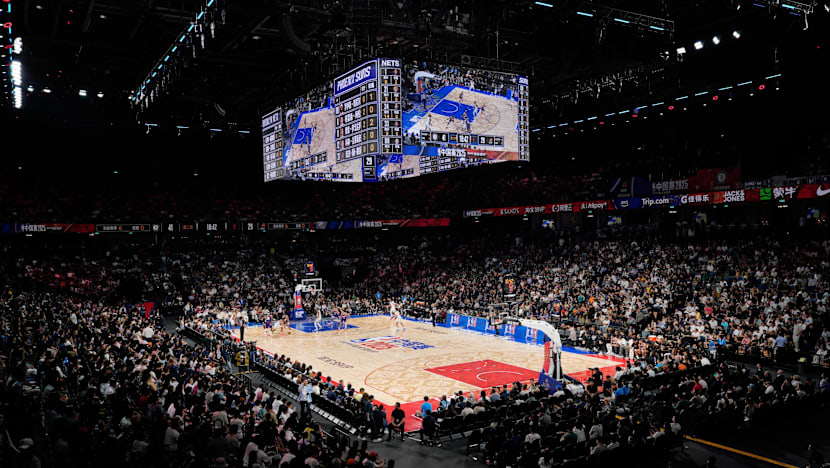
A general view of a preseason NBA basketball game between Phoenix Suns and Brooklyn Nets in Macau, Friday, Oct. 10, 2025. (Photo: AP/Vernon Yuen)

This audio is generated by an AI tool.
SHANGHAI: For Chinese basketball fans, the long wait is finally over.
The NBA returns to China after a six-year hiatus - staging two pre-season matches in Macau between the Brooklyn Nets, which is also owned by Alibaba chairman Joseph Tsai, and the Phoenix Suns.
The Venetian arena in Macau was packed to capacity on Friday night (Oct 10), with fans clamouring for live action.
Allen Xie, 29, Adidas Basketball’s global brand marketing manager, was among those in the crowd.
It was an “amazing fan atmosphere”, he told CNA, adding that there was a lot of brand presence and activities - “giving fans a great experience of basketball and the surrounding cultures”.
For fans, this is a return long overdue.
For industry watchers, it signals a cautious dribble back into one of the league’s most important overseas markets - following years of careful planning and recalibration.
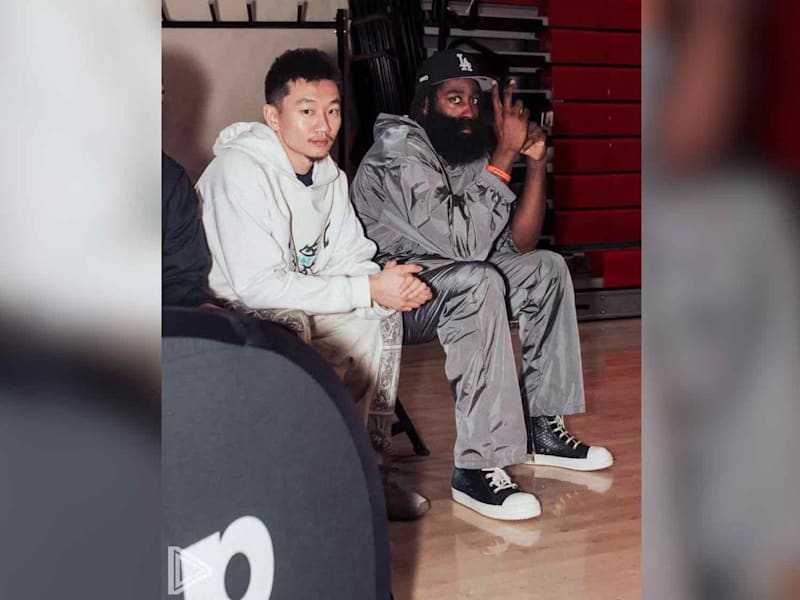
“The China fans are some of our biggest supporters,” American basketball star Michael Porter Jr of the Brooklyn Nets told reporters on the sidelines at the arena.
“There are so many fans out here so I think coming out here and being able to play in front of them is definitely a blessing for us and for them.”
Phoenix Suns’ star player Devin Booker shared his excitement and hailed the importance of the NBA’s return to China.
“The game of basketball touches everywhere in the world, but especially in China,” the 28-year-old said.
“It’s super important (as) we have a big fan base out here in China, and we have Chinese players in the NBA.”
“Just seeing the reaction of the fans, their faces lit up just upon our arrival. So it’s important for us and for the league to be here in person and doing this.”
“They weren’t going to stay out forever. It was really a question of just how long and here we are,” Mark Dreyer, a Beijing-based media and sports analyst, told CNA.
Their return had been a year in the making, Dreyer said.
“They wanted to let the temperature come down,” Dreyer said, referring to the political fallout after a team official tweeted his support for pro-democracy protests in Hong Kong in 2019.
“That was 2019.”
Then the pandemic hit. “That was basically (another) three years,” he said, noting that it takes time to sort out scheduling and post-pandemic logistics.
The choice of Macau - a special administrative region - as the staging ground for its return was also a savvy, strategic decision, he added.
“It’s China, but it’s not,” Dreyer said. “If there's anyone who still harbours any ill feelings towards the NBA in China, they are not flying to Macau to protest.”
“The only people going (to the matches) are die-hard fans who have missed seeing their heroes in the flesh.”
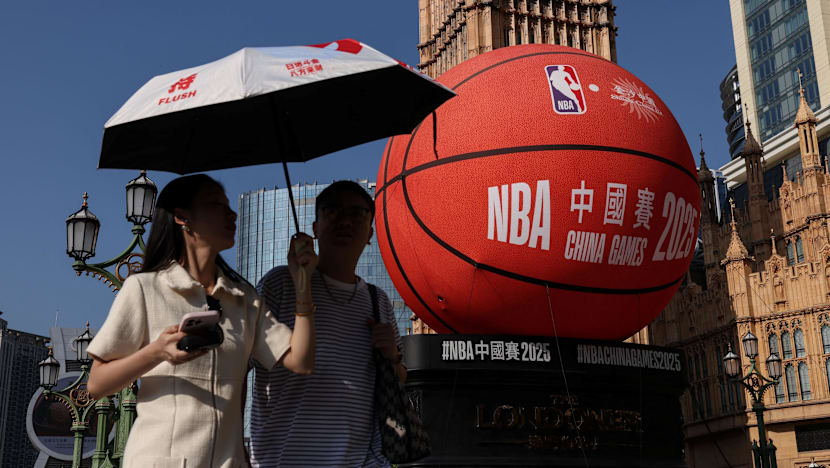
2019 FLASHPOINT
One of the most successful cultural exports from the US, the NBA transformed basketball into a worldwide phenomenon and is hugely popular in China.
But a crisis arose in 2019 over a tweet. That October, then-Houston Rockets general manager Daryl Morey tweeted his support for Hong Kong protesters.
Although it was quickly deleted, Morey’s tweet triggered a wave of condemnation in China. Beijing’s reaction was swift and severe - suspending broadcasts of NBA matches and prompting Chinese sponsors to cut ties, costing the league hundreds of millions of dollars in lost revenue.
Public opinion turned and the NBA soon found itself caught up in geopolitical fault lines.
Ardent basketball fan Jimmy Zhang from Shanghai has followed the league for more than 20 years, admiring NBA stars like Yao Ming and Jimmy Butler while rooting for teams like the Golden State Warriors.
Zhang, who once served in the Chinese military, found Morey’s actions deeply offensive.
“Those comments felt completely disrespectful,” Zhang told CNA.
“I made my stance clear,” Zhang said. “I stopped reading or watching anything (to do with Morey). I refused to give him attention.”
He added: “I’m 36, and many people my age, guys I used to play basketball with, barely follow basketball anymore. For fans in their 30s and 40s, family and work have taken priority, so some (lost interest) especially after the NBA disappeared from Chinese TV for a while.”
Before the controversy, the NBA was hailed as a model of success in China. Experts said it enjoyed two decades of regular preseason games, a growing Chinese fan base, and one of the largest overseas commercial ecosystems of any global sports league.
“They were the textbook case of success in China,” Dreyer said. “Up until 2019, the NBA was absolutely the gold standard, at least in the sports world, on how to do well in China.”
Considerable damage was done in 2019, Dreyer said, adding that the league’s own communication strategy over the incident had worsened the crisis.
In the days after the offending tweet, the NBA issued an English statement expressing “great respect for the history and culture of China”, while the league’s Chinese-language statement included the phrase “hurt the feelings of Chinese fans” - drawing bipartisan criticism in Washington, where both Democrats and Republicans accused the NBA of prioritising its commercial interests over free expression and human rights.
On the other hand, Chinese officials denounced it for falling short of a full apology.
“American fans thought the NBA was being far too submissive towards the Chinese government. The Chinese government clearly didn’t think they were being nearly apologetic enough. So effectively, they (angered) both sides.”
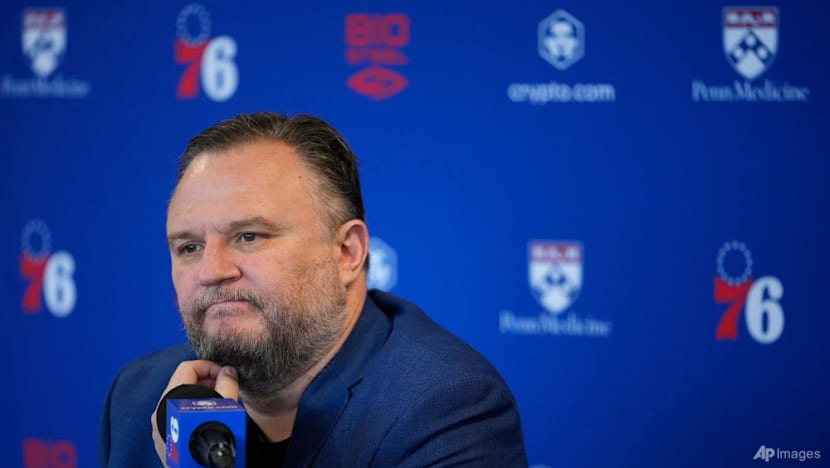
But all was not lost for the NBA in China, Dreyer said. Its presence never disappeared entirely, even after the backlash. “They didn’t lose everything. They didn’t go back to zero,” Dreyer said.
After matches were blacklisted on Chinese state broadcasters and major TV channels, fans turned to digital platforms like Tencent Sports to stream NBA content.
The league maintained a subdued commercial presence behind the scenes. Merchandising did not collapse and many deals were still active.
Dreyer also credits Tsai, the Alibaba chairman and Nets owner, as “playing a central role again in bridging both sides”.
The league recently announced a multi-year partnership with Alibaba, tapping the company’s AI and cloud capabilities to enhance digital fan experiences.
China remains the NBA’s most significant overseas market.
Before the 2019 controversy, Tencent estimated that nearly 500 million viewers - one-third of China’s population - regularly watched NBA content across its platforms.
ESPN reported that the NBA’s China operations had expanded into a US$5 billion business, recording double-digit annual growth since 2008 before the fallout.
Chen Bowen, a 28-year-old IT worker in Beijing, has followed the NBA since childhood and said it remains “very much part of pop culture here”.
“It really shaped how I viewed the US and its culture,” said Chen, who has studied in the US. He looks up to players like LeBron James.
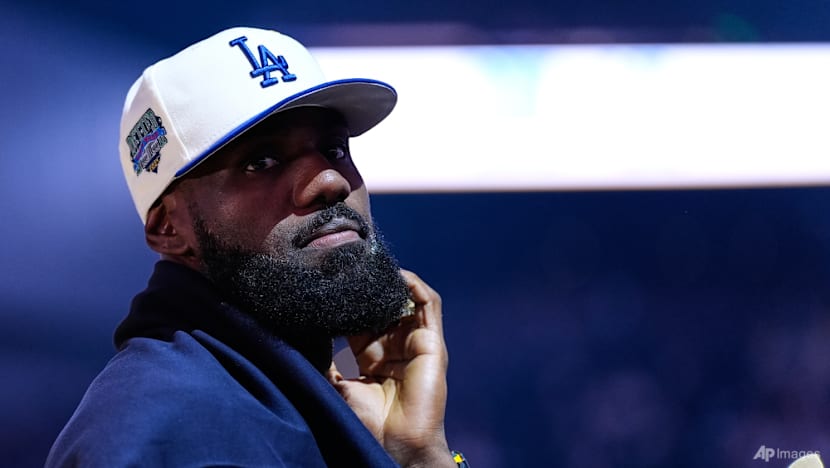
“He was a role model for me, motivating me through my studies and now in my career,” he added.
For diehard fans like him, the league never “truly left” China.
“True fans never felt distant from it,” Chen said. “We’ve always had ways to watch matches. Tencent Sports, for example, has been streaming NBA games for years,” he added.
But watching online didn’t bring the same satisfaction, Chen said. “It wasn’t the same - poor signals, lagging streams. Seeing games again on a big TV screen makes the action much more vivid - watching on a phone just can’t compare. So I was really happy (when it returned to China).”
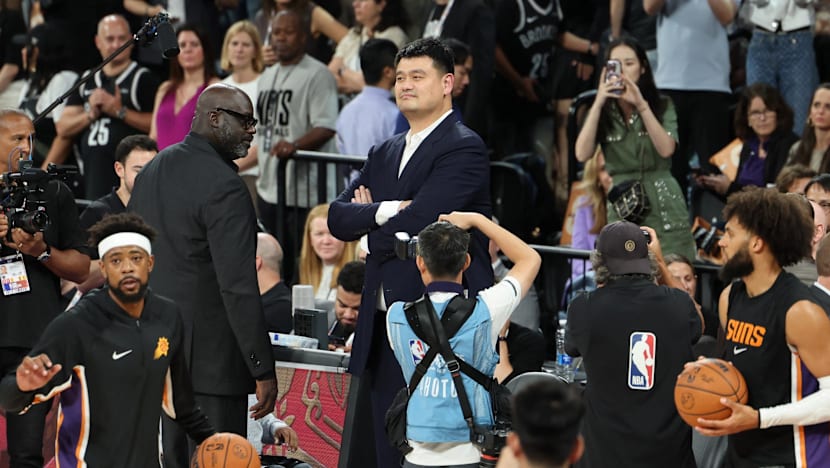
REBUILDING TRUST AND COURTING CHINA AGAIN
Wang Yuantao, a project manager at a Beijing-based sports marketing firm, believes the NBA’s real comeback in China began not with games, but with visits and appearances by star players.
“You could say that 2023 was the starting point for the surge of NBA players visiting China, right after COVID controls ended,” Wang told CNA.
That year, players like Gordon Hayward and Spencer Dinwiddie returned to promote new deals with Chinese sportswear brands such as Anta and 361 Degrees, Wang said, and since then, the momentum has only grown - with stars like LeBron James, Paul George and Draymond Green visiting not just for meet-and-greets, but as stars of wider brand campaigns tied to local tourism and culture.
Wang has been involved in promoting the NBA in China, including coordinating tours for visiting NBA stars.
“Many of these visits are now co-organised with local governments and other partners,” Wang said.
“They want to promote tourism and international sporting culture by funding events and incorporating NBA players into broader campaigns.”
For industry professionals like Xie, the return of live games marks a bigger moment for the sport’s growth in China.
It’s amazing that the “NBA is back”, he said. “China has a huge basketball audience and fan base. The NBA is better with games in China.”
Cities like Quzhou and Chongqing have hosted fan festivals and basketball clinics featuring NBA players, Wang noted. “Municipal governments strongly support these visits,” he added. “In many cases, government funding effectively sets the appearance floor fee.”
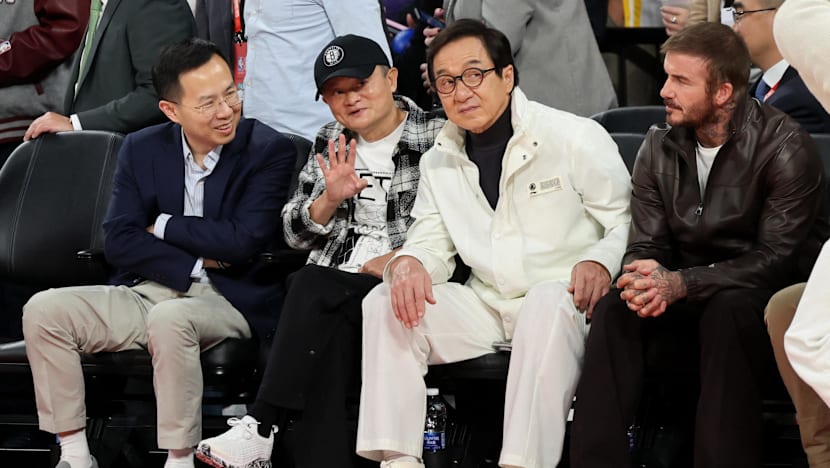
Observers have described NBA's saga with China as a lesson for foreign companies in striking a balance between business and free expression, and how sports and politics are intertwined, and why understanding the local context is crucial.
In the years since 2019, both the league and its partners have carefully adjusted their approach. While political sensitivities remain, public-facing efforts now emphasise cultural exchange, local engagement and goodwill.
“We avoid political sensitivities - not out of fear, but from a brand perspective,” Wang explained.
“We stay away from sensitive dates and phrasing. When we pitch, we use the visiting player as an anchor to convey that ‘Chinese strength’ can be expressed both inward and outward.”
He added that the focus has shifted from promotion to connection. “When players come to China now, they spend more time experiencing the country - showing that they’re not just here to cash in.”
Tours and appearances by NBA stars have underscored that approach, he added.
American basketball player for Denver Nuggets, Aaron Gordon, paid a visit to Bruce Lee’s ancestral home in Guangzhou back in 2023.
This year Serbian basketball player Nikola Jokić of the Denver Nuggets rode the high-speed rail while visiting Shijiazhuang, Hebei’s capital in July, while Draymond Green, a four time NBA champion for the Golden State Warriors, visited a war memorial in Quzhou in September.
“Player tours don’t just bring Chinese fans closer to their idols,” Wang said. “They also let global audiences see China through the eyes of the players they admire.”
Longtime fan Zhang sees the change as part of a broader evolution. “In the ’90s and 2000s, the NBA’s (image) was tattoos, trash talk and that street-gang vibe,” he said.
“It felt ‘tough’, but also a bit problematic for China. Now players like Stephen Curry, Luka Dončić and Jaylen Brown aim to project a more positive image as better role models - that aligns better with Chinese values.”
Dreyer said the NBA has been treading carefully but effectively in its efforts to win back China.
“You’re caught between two very different systems, East and West (so) some rules can be directly contradictory,” he said. “It’s very challenging.”
Still, he believes the league is better prepared now than it was back in 2019.
“They’re trying to build on a long history of success.”
Fu Zhenghao, a Beijing-based basketball commentator, told the Global Times on Thursday that the NBA needs to learn its lesson and make greater contributions to cultural exchanges between China and the US.
He said that at a time when bilateral relations are at a critical juncture, the NBA's engagement with China remains one of the most high-profile cultural exchange channels.
Fu was quoted as saying that “both sides should make full use of basketball's role as a means of communication to promote stronger exchanges between two countries”.
Others believe that the next step could be long-term investment on the ground.
The NBA has announced a partnership with the Chinese Basketball Association (CBA) to support the development of elite players, coaches, and referees in China.
“The NBA should invest in Chinese youth programmes,” said Zhang, a fan of the league.
“Expose (Chinese youth) to NBA-style basketball and culture early and bring that into schools and training programmes - that’s how basketball here can really grow.”
Xie echoed that sentiment, saying the NBA’s presence in China still inspires.
“I don’t take it for granted that I get to work in the sport I loved since I was a kid,” he said.
“I’m always a fan of the game.”
















